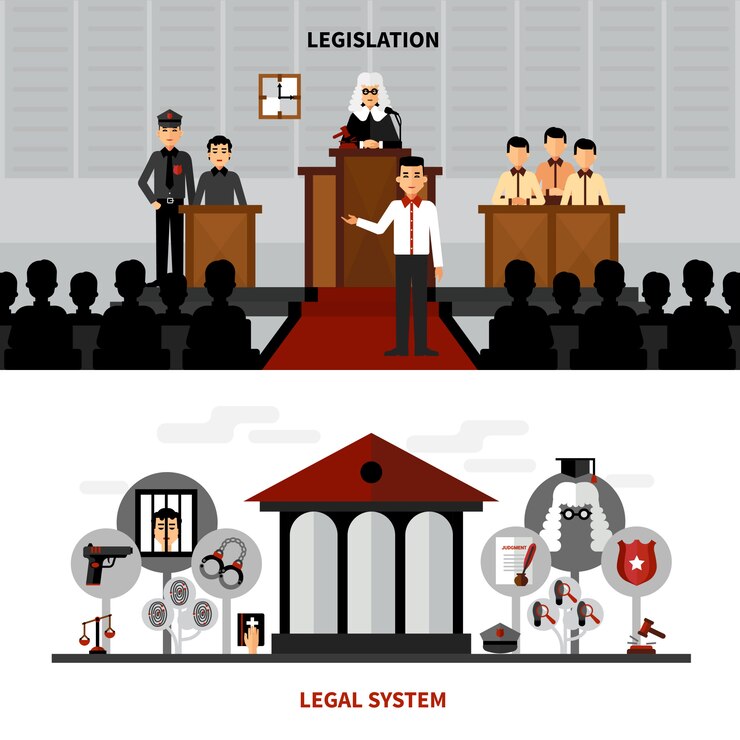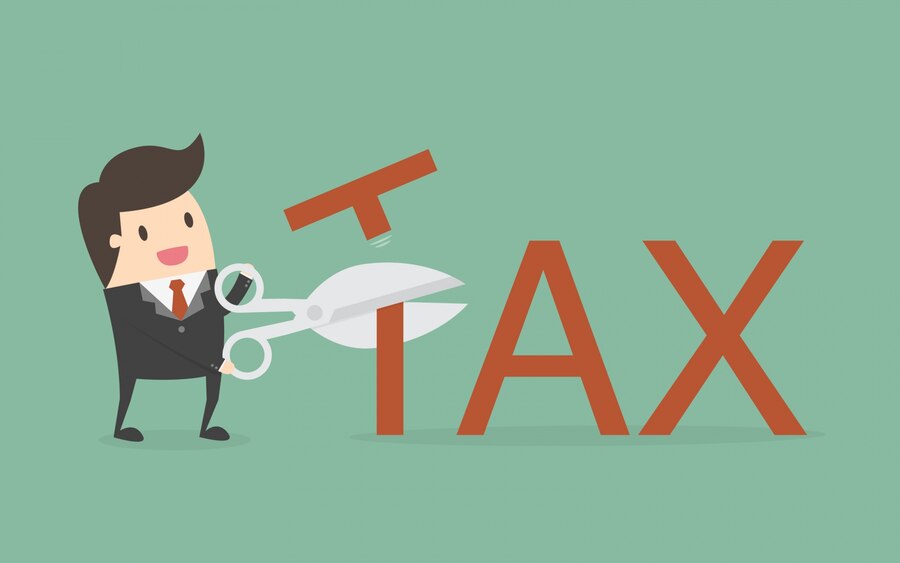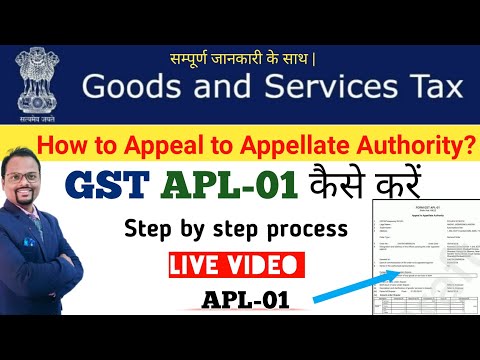Key Takeaway
- GST Registration can be either cancelled by the authorities or voluntarily by the taxpayer, with revocation possible only when cancellation is authority-initiated.
- Filing Form GST REG-21 is essential for businesses seeking to reverse a cancellation, needing submission within 30 days of the cancellation notice.
- If discrepancies arise, Form GST REG-23 will be issued, providing the taxpayer an opportunity to clarify and support their case for revocation.
- Appeals against GST Registration cancellation must be filed within 30 days to the Appellate Authority for Advance Ruling (AAAR) of the respective state or union territory.
- Key requirements for appealing a cancellation include ensuring all GST compliances are met, possessing valid reasons for appeal, and thorough preparation for potential hearings.
What is Revocation or Cancellation of GST Registration?
In the context of Goods and Services Tax (GST) in India, revocation or cancellation of GST registration are two distinct actions taken under specific circumstances which affect the status of a taxpayer’s GST registration.
Cancellation of GST Registration refers to the termination of a GST registration by the tax authorities or by the taxpayer themselves. This can occur for various reasons such as closure of business, turnover below the mandatory registration threshold, change in business structure, or non-compliance with GST regulations. Once the GST registration is cancelled, the taxpayer is no longer required to pay or collect GST, and they cannot claim any input tax credit.
Revocation of GST Registration is the process through which a taxpayer can contest a cancellation and restore their GST registration. This is applicable in cases where the GST registration was cancelled by the authorities and not voluntarily by the taxpayer. To revoke a cancellation, the taxpayer must file an application within a specified period (usually 30 days from the date of cancellation notice) demonstrating valid reasons why their registration should not have been cancelled and ensuring compliance with all GST regulations.
The process for revocation involves submitting specific forms and documents to the GST authorities, who will review the case and decide whether to reinstate the GST registration. This process is crucial for businesses that wish to resume their operations post-cancellation and continue benefiting from the GST regime.
Form GST REG-21: Application for Reversing Cancellation of GST Registration

Form GST REG-21 is utilized by taxpayers who seek to reverse the cancellation of their GST registration. This form is a critical document for businesses that believe their registration should not have been cancelled or those who have rectified the reasons for cancellation. By filing Form GST REG-21, taxpayers formally request the reinstatement of their GST privileges, allowing them to continue conducting taxable activities and complying with GST obligations. The application must be submitted within 30 days from the date of the cancellation order, unless an extension is granted by the GST authority.
Form GST REG-23: Notice of Cancellation of the Revocation Application
Form GST REG-23 is issued by the GST authorities in response to the application made using Form GST REG-21 if there are any discrepancies or if the authority needs further clarification before reinstating the GST registration. This form acts as a formal notice to the taxpayer that their application for revocation (submitted via Form GST REG-21) is at risk of being cancelled due to specified issues. The taxpayer is typically given an opportunity to respond to the concerns raised in Form GST REG-23, providing additional information or clarification as required to support their case for revocation of the cancellation. This step ensures that all aspects of the revocation request are thoroughly reviewed before a final decision is made.
Where to File an Appeal Against GST Registration Cancellation in India?
If you wish to appeal against the cancellation of your GST Registration in India, the process is structured and requires filing an appeal with specific GST appellate authorities depending on the stage of appeal.
Primary Appeal
The initial appeal against the cancellation of GST registration should be filed with the Appellate Authority for Advance Ruling (AAAR) within your respective state or union territory. This is the first level of appeal where taxpayers can contest the decision made by the tax officer regarding the cancellation of their GST registration.
Steps to File the Appeal
- Prepare the Appeal Document: This includes all the necessary details about your case against the cancellation, the grounds of appeal, any relevant evidence, and the outcome you are seeking.
- File the Appeal: The appeal document should be submitted to the AAAR along with any applicable fees as prescribed under the GST laws. It is advisable to keep a copy of the appeal for your records.
- Hearing of the Appeal: After reviewing the appeal submission, the AAAR will schedule a hearing. You will have the opportunity to present your case in detail during the hearing.
- Decision: The AAAR will make a decision after the hearing, which can be further appealed if you are unsatisfied with the outcome.
Higher Appeals
If the decision at the AAAR is not favorable, or if you wish to contest the AAAR’s decision, you can escalate the appeal to the High Court and subsequently, the Supreme Court of India, based on the nature of the legal issues involved. Each level of the judiciary offers a higher level of scrutiny and review.
Filing an appeal involves navigating complex legal grounds and procedural nuances. It is often advisable to consult with or hire a GST consultant or a legal expert specializing in tax law to ensure that the appeal is properly formatted, justified, and submitted within the stipulated deadlines. This can increase the chances of a successful resolution in your favor.

Timeline for Filing an Appeal Against GST Registration Cancellation

When it comes to appealing a GST Registration cancellation in India, understanding and adhering to the specified timeline is crucial for a successful appeal process. The GST law provides a clear framework for the timing of filing appeals to ensure timely justice and resolution of issues.
Key Deadlines and Timeframes
Filing the Initial Appeal
- Within 30 Days: An appeal against the cancellation of GST registration must be filed within 30 days from the date on which the cancellation order is communicated to the taxpayer. This appeal should be directed to the Appellate Authority for Advance Ruling (AAAR).
Request for Condensation of Delay
- If you miss the 30-day deadline, you can apply for a condonation of delay, where you provide a valid reason for not meeting the timeline. The AAAR has the discretion to accept or reject this request based on the merits of the justification provided.
Processing Time by AAAR
- Variable Timeframe: The time taken by the AAAR to process the appeal can vary based on the complexity of the case, the workload of the AAAR, and other factors. However, they generally strive to resolve appeals within a few months.
Further Appeals
- Higher Courts: If you wish to challenge the decision made by the AAAR, further appeals can be made to the High Court and eventually the Supreme Court. Each subsequent appeal must typically be filed within 90 days of the decision of the previous authority, subject to the possibility of condonation of delays under certain circumstances.
Importance of Adhering to Timelines
Adhering to these timelines is critical. Filing within the prescribed periods ensures that your appeal is considered valid and can be adjudicated on its merits rather than being dismissed on procedural grounds. Late filings can complicate the process and potentially lead to automatic rejection of the appeal.
Tips for Compliance with Timelines
- Keep Informed: Always keep track of any communications regarding GST registration cancellations and note the dates carefully.
- Prepare in Advance: As soon as you receive a cancellation order, begin preparing your appeal documentation to avoid last-minute rushes and potential delays.
- Legal Advice: Consider consulting with a GST expert or legal advisor who can help ensure that all procedural requirements are met and that your appeal is filed on time.
Understanding and following the timeline for filing an appeal against GST registration cancellation is essential for maintaining your business’s compliance and avoiding further complications with the GST authorities.
💡If you want to pay your GST with Credit Card, then download Pice Business Payment App. Pice is the one stop app for all paying all your business expenses.
Requirements Before Filing an Appeal Against GST Registration Cancellation
Before you proceed with filing an appeal against the cancellation of your GST registration, it is essential to ensure that all prerequisites are met. These requirements are designed to streamline the appeal process and increase the likelihood of a favorable outcome. Here are the key necessities:
1. Document Collection
Collect all relevant documents that support your case. This includes:
- The original GST cancellation notice from the GST authorities.
- Any correspondence with the GST department regarding the cancellation.
- Supporting documents that prove your points of objection against the cancellation.
2. Compliance with Tax Laws
Ensure that all pending GST returns are filed and any outstanding tax dues are cleared. Non-compliance can significantly weaken your case and may even lead to the dismissal of your appeal.
3. Valid Grounds for Appeal
Identify and establish valid grounds for your appeal. This involves reviewing the reasons for cancellation provided by the GST authorities and preparing a justified argument against each point. Valid reasons might include procedural errors by the GST department, wrongful interpretation of your compliance status, or rectification of the issues that led to the cancellation.
4. Legal Representation
Although not mandatory, having a tax lawyer or a GST consultant represent your case can improve the management of your appeal. These professionals can offer expert advice on the intricacies of GST law and ensure that your appeal is presented in the most effective manner.
5. Application Form
Complete the necessary application form for the appeal, which is typically Form GST APL-01. This form should be filled out accurately and should include a detailed statement of facts, grounds of appeal, and the relief sought.
6. Appeal Fee
Pay the required fee for filing the appeal. The fee amount varies depending on the tax amount involved in the case or other criteria set by the GST authorities. This fee is usually a small fixed amount or a percentage of the disputed tax amount.
7. Preparation for Hearing
Prepare for the potential hearing process. This includes arranging for witnesses if needed, compiling a list of questions you may face, and rehearsing your presentation of the case. Being well-prepared for the hearing can significantly impact the outcome in your favor.
By meeting these requirements before filing your appeal, you can ensure that your case against GST registration cancellation is strong, well-prepared, and has a higher chance of being successful. Remember, the appeal process is your opportunity to rectify misunderstandings and bring your business back into compliance with GST norms, so thorough preparation is key.
Step-by-Step Guide to Appeal Against GST Registration Cancellation
Appealing against a GST registration cancellation requires careful planning and adherence to prescribed procedures. Here is a detailed step-by-step guide to help you navigate this process:
| Step Number | Action | Description |
|---|---|---|
| Step 1 | Review the Cancellation Order | Begin by thoroughly reviewing the GST cancellation order you received. Understand the reasons for the cancellation and assess your grounds for appeal. |
| Step 2 | Gather Supporting Documentation | Collect all relevant documents that can support your appeal. This includes financial records, tax filings, communications with GST authorities, etc. |
| Step 3 | File the Appeal Form | Complete the appeal form (typically GST APL-01), ensuring all fields are accurately filled. Attach all supporting documents and evidence to your appeal form. |
| Step 4 | Pay the Required Fee | Submit the required fee for filing the appeal. This fee usually depends on the amount of tax involved in the dispute. |
| Step 5 | Submit the Appeal | Submit your completed appeal form along with all attachments to the appropriate appellate authority, such as the Appellate Authority for Advance Ruling (AAAR). |
| Step 6 | Attend the Hearing | Attend the scheduled hearing to present your case in detail. Be prepared to answer questions and provide further explanations about your documents and reasons for appeal. |
| Step 7 | Await the Decision | After the hearing, the appellate authority will deliberate and issue a decision on your appeal based on the presented information and documentation. |
| Step 8 | Follow Up | If your appeal is successful, follow up with the GST authorities to ensure that your GST registration is reinstated. Consider further appeals if necessary. |
This table provides a clear and organized overview of each step involved in appealing a GST registration cancellation, making it easy to understand and follow.
Who Cannot Apply for Revocation of Cancelled GST Registration?
There are specific conditions under which a taxpayer cannot apply for the revocation of a cancelled GST registration. These include:
1. Voluntary Cancellation
Taxpayers who have voluntarily requested the cancellation of their GST registration cannot apply for its revocation. This is because the cancellation in these cases is initiated by the taxpayer themselves and not by the authorities.
2. Non-compliance with Mandatory Legal Requirements
If the GST registration was cancelled due to non-compliance with mandatory legal requirements, such as not filing returns regularly or failing to comply with tax payment regulations, these taxpayers are typically not allowed to apply for revocation.
3. Fraudulent Activity
Businesses that have had their GST registration cancelled due to involvement in fraudulent activities or other serious violations of GST laws are also barred from applying for revocation. This includes cases where there is evidence of tax evasion, misuse of tax credits, or other illegal activities.
Understanding these guidelines and following the prescribed steps can greatly enhance your chances of successfully appealing against GST registration cancellation or understanding if you are eligible for revocation.
Revocation of Cancellation, Cancellation Procedure, Concerned Officer, Time limit, Appeal against registration order, rejection of enrolment
FAQs
What is the process for revocation of cancellation of GST registration?
The process for the revocation of cancellation begins with the taxpayer filing Form GST REG-21 within 30 days from the date of the cancellation notice. This form must be submitted to the concerned officer who issued the cancellation order. The revocation application is reviewed, and if additional information is needed, Form GST REG-23 is issued to the applicant. The taxpayer then has an opportunity to address any discrepancies or provide further clarification to support their revocation request.
How does the cancellation procedure of GST registration affect a business?
The cancellation procedure directly impacts a business by terminating its GST registration, which means the business can no longer charge GST on sales or claim input tax credits. This action is usually taken by a concerned officer due to non-compliance, voluntary cancellation, or other statutory reasons. Once cancelled, the business must cease all taxable operations until the GST registration is potentially reinstated through the revocation process, if applicable. Non-compliance after cancellation can lead to legal actions and penalties.
What is the role of the concerned officer in the GST registration cancellation process?
The concerned officer plays a critical role in both the cancellation and revocation procedures of GST registration. This officer is responsible for evaluating the reasons for cancellation, issuing the cancellation order, and reviewing any subsequent revocation application filed by the taxpayer. If the officer finds any issues with the revocation application, they will issue Form GST REG-23 to communicate these issues to the taxpayer. The decision made by the concerned officer significantly affects the taxpayer’s ability to conduct taxable business activities.
What is the time limit for filing an appeal against a GST registration cancellation order?
The time limit for filing an appeal against a GST registration cancellation order is strictly within 30 days from the day the cancellation notice was received by the taxpayer. This appeal should be filed with the Appellate Authority for Advance Ruling (AAAR) in the respective state or territory. It is crucial to adhere to this time limit as failing to do so can result in the permanent cancellation of GST registration without the possibility of revocation. Taxpayers are advised to prepare their appeal meticulously to ensure all relevant evidence and documents are included.
What happens if there is a rejection of enrolment during the GST revocation process?
A rejection of enrolment during the GST revocation process typically occurs if the taxpayer fails to convincingly justify the reasons for overturning the cancellation, or if there are unresolved compliance issues. In such cases, the concerned officer will issue a rejection notice detailing the reasons for rejection. The taxpayer has the right to appeal this decision within a specified time limit by providing additional proof or clarification of compliance. If the appeal is not successful, the cancellation of the GST registration stands, affecting the business’s legal ability to operate under GST norms.
Can I appeal for revocation of cancellation in GST after 180 days?
No, appealing for revocation of a GST registration cancellation after 180 days is generally not allowed. The standard period for applying for revocation is within 30 days from the date the cancellation order is issued, as specified in the GST regulations. Although a concerned GST officer may allow an extension under certain circumstances, this extension typically does not extend to 180 days. If you miss this timeframe, it is advisable to consult with a GST expert or legal professional to explore any other possible legal remedies or courses of action.








